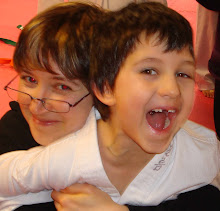This is a book that rewards you the more you keep reading it.
It starts out looking like a farce, as you meet the Lambert family, from the fictional town of St. Jude, somewhere in the midwestern USA. Each family member seems to be a caricature, a stereotype. First you encounter the parents, Enid and Alfred, who are trapped in a soured marriage (and in a house full of kitschy clutter). Enid is gossipy, snobby, and interfering. She nags her husband mercilessly, driving him to spend his retirement days in a cluttered basement workshop ignoring her. She brags to her friends about her three grown children's accomplishments, while inside she feels bitterly disappointed about the way they've turned out. She writes long letters to her offspring, full of barbed comments and questions and full of praise for the accomplishments of their siblings.
And those siblings are not a charming bunch at first. The feckless Chip sinks deeper and deeper into debt while he sits in his New York apartment amid the ruins of a failed academic career, writing a meritless screenplay. Gary, Chip's neurotic older brother, who thinks he's a real hot shot investment banker, lords it over his siblings and parents from his fancy Philadelphia mansiont (that is, when he's not escaping to work to avoid his overbearing wife and spoiled children). Meanwhile, Denise, the baby of the family, takes refuge in her career as a chef and tries to put as much distance between herself and her family as possible, actively disparaging her mother's values.
Meanwhile, Alfred seems to be the only one in the family with any sense and decency. Unfortunately, he's losing his battle with Parkinson's disease and dementia, and he's so overshadowed by Enid, not to mention the self-centeredness of his entire family, that nobody seems to pay him much attention.
Enid is maneuvering and manipulating her children throughout the course of this book, trying to get them to agree to come and spend one last Christmas with their parents in St. Jude. As the fateful holiday draws closer, a number of events are set into motion that propel the characters toward major changes in their lives. The narrative switches to focus on each of the characters in turn, and that's where Franzen moves beyond the amusing caricatures and shows us the people inside. The book becomes, to quote from the novel, "a tragedy rewritten as farce".
If you take the time to get to know people and see beyond the face they show to the world, they can show you so much more about themselves. This is not often true of fictional people, but it is true of the Lamberts. Each of them has a unique voice, an internal monologue that feels so authentic that I couldn't help being sucked into this story. As the story unfolds, they reveal their depth, their feelings and motivations. I found that I started rooting for them and wanting the best for each of them even while I laughed at their foibles and proclivities. I hoped that Enid could get over her many disappointments, that Alfred could somehow reach his children and convince them to treat him with respect, that Chip would outgrow his irresponsibility and find some kind of worthwhile focus, that Gary could find a way to connect with his family and that Denise would figure out what she wants out of life.
Read this book! And if you do, let me know what you think in the comments :-)
Subscribe to:
Post Comments (Atom)

2 comments:
Wow! This sounds awesome. I can't wait to read it!
I recently read this book and I must say I agree with you. The characters have so much more depth than usually encountered.
Post a Comment